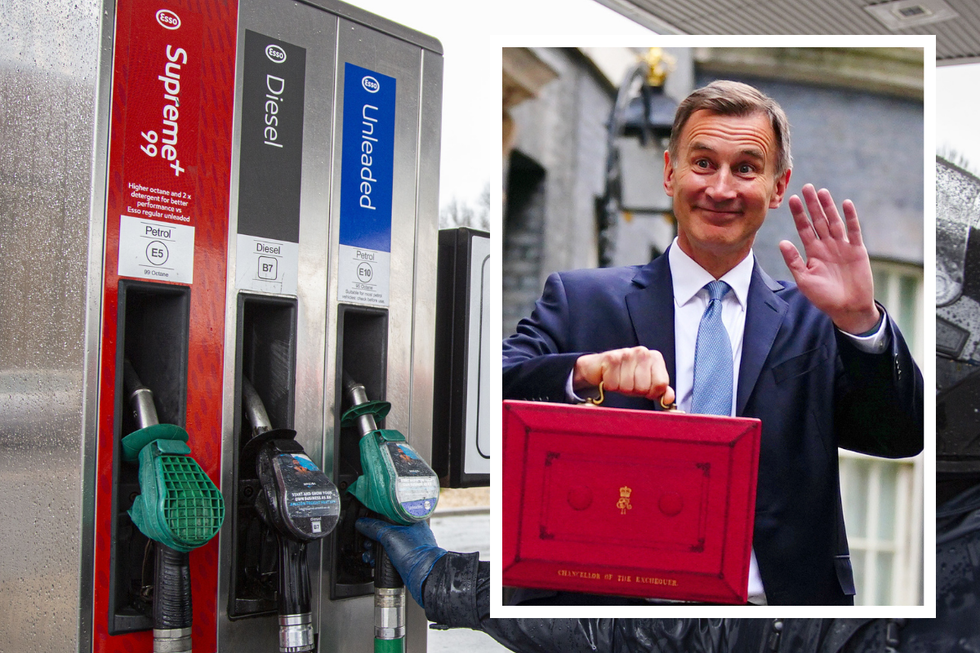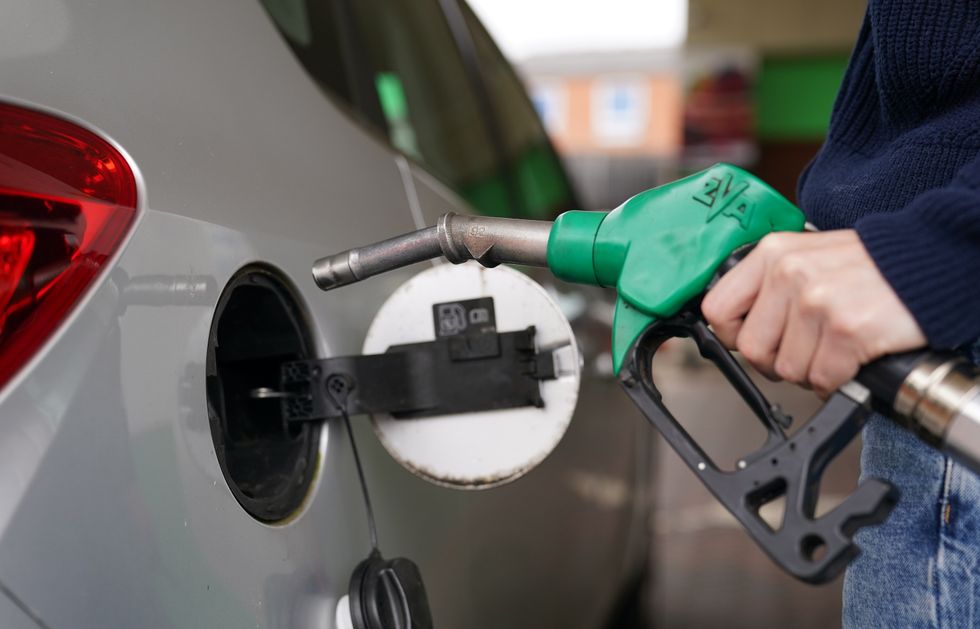Petrol and diesel drivers demand help at the pumps and one man could save the day – analysis by Felix Reeves
The Chancellor has the chance to support drivers with a clear message at the despatch box in March
Don't Miss
Most Read
Trending on GB News
The new year is almost upon us, with drivers up and down the country hoping for a more stable 2024 than the previous 12 months. However, with an election looming, it doesn’t look likely.
The cost of living crisis is still raging on and very little is being done to protect drivers from the never-ending barrage of motoring costs.
Petrol and diesel prices at the pumps are still high, car tax is set to rise in April and car insurance is seemingly soaring without an end in sight.
So what can actually be done to help? Can the Government pull a magic lever and slash prices for drivers? Will costs dramatically drop on their own?

Jeremy Hunt announced that the Spring Budget would take place on March 6
GETTY/PA
Both Conservatives and Labour have pledged to back drivers with various measures, ranging from scrapping low traffic neighbourhoods to removing red tape for transport projects.
While these options are certainly a good signal for motorists, the UK’s 40 million licence holders need something more direct and immediate.
With an earlier-than-expected Spring Budget set to be delivered on March 6, the Government has the chance to save face and extend the five pence per litre cut on fuel duty.
The RAC is predicting that petrol and diesel prices should fall in the future, but everyone knows that the volatile prices could switch at any moment.
Van drivers – the beating heart of the nation – are still facing costs of almost £1.50 per litre and when travelling tens of thousands of miles a year, that adds up very quickly.
Chancellor Jeremy Hunt has the opportunity to help drivers massively with a simple cut to fuel duty. He could even increase the cut, say, to 10 pence per litre, to bring prices down to levels not seen since before the coronavirus pandemic.
There have been murmurings in previous years that the Government was planning a massive increase in the rate of fuel duty, although this was ultimately dropped.
At the start of this year, the Office for Budget Responsibility (OBR) forecast that the Government was planning a 23 per cent increase in the fuel duty rate in the March Budget.
This would have resulted in a £5.7billion boost to Government coffers, represented a record cash increase and, most importantly, would have raised the price of petrol and diesel by around 12p a litre.
Thankfully the Government had better sense than this and extended the cut by another 12 months, but does this set a dangerous precedent?
A further cut to fuel duty would ensure drivers are protected at the pumps from greedy retailers and global issues like Russia and the armed rebels storming tanker ships in the Red Sea.
In an election year, this would seem like a no-brainer for the Government to boost its voter base and make life slightly easier for Britain’s fleet of motorists.
LATEST DEVELOPMENTS:
- Driving law changes coming in 2024 to have huge impact on all UK motorists including new charging schemes
- Petrol drivers forced to pay £700 a year extra in running costs while electric cars are 'so much cheaper'
- Driving plans could see more traffic police rolled out after banned motorist caught at the wheel 20 times

Experts have predicted that fuel prices will fall in the near future but more needs to be done
PA
Another summer of record prices seen last year could be the final nail in the coffin for thousands, if not millions, of drivers up and down the country, forcing them off roads.
Paying almost £2 for a litre of diesel is a near-impossible task and drivers will continue to make their voices heard if things do not change quickly.






